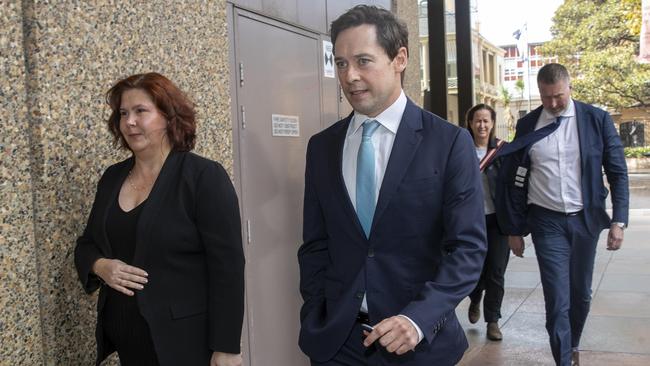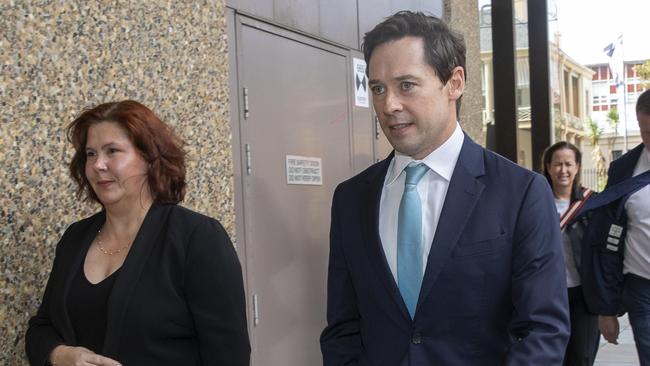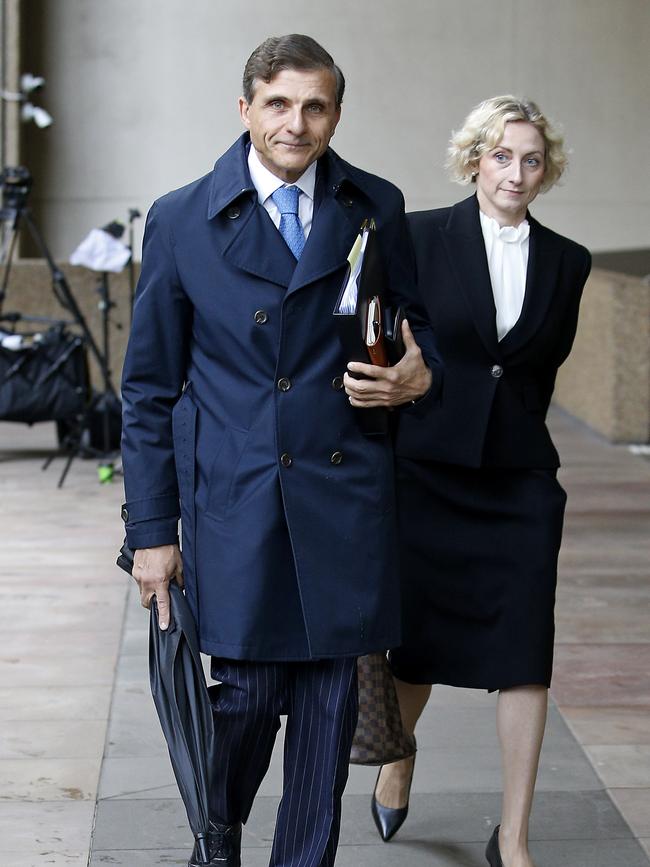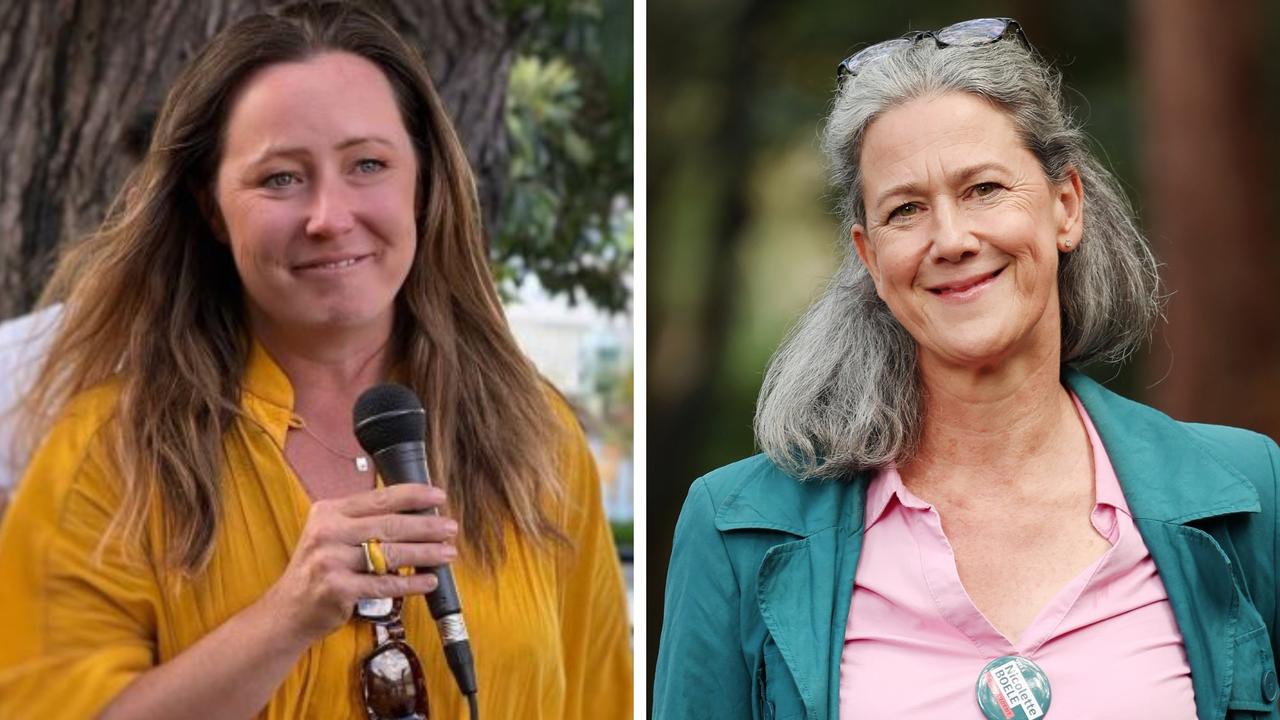Nine reporter denies acting unethically as Ben Roberts-Smith appeals war crimes verdict
The Nine newspapers journalist acknowledged saying his career would be over if he lost the defamation case, but insisted he was only ever motivated ‘to find evidence of truth’.

Nine reporter Nick McKenzie has acknowledged writing in his book that he had “his balls in a vice” because his career would be over if he lost the defamation case brought against him by Ben Roberts-Smith, but insisted he was only ever motivated “to find evidence of truth”.
McKenzie took the stand late on Thursday in Robert-Smith’s appeal against the finding that he was a war criminal, after the Federal Court ruled earlier in the day that the secret recording at the heart of the case should be allowed into evidence.
The recording was a snippet of a phone conversation between McKenzie and Roberts-Smith’s former mistress, known in the case as Person 17, in which the journalist appears to admit having access to the war veteran’s privileged legal strategy.
In cross-examination, barrister Arthur Moses, appearing for Roberts-Smith, probed McKenzie about whether it was ethical for a journalist to unlawfully gain unauthorised access to someone else’s personal data, and whether he had ever done so.
“In your work as an investigative journalist, have you ever unlawfully gained unauthorised access to someone else’s personal data by using subterfuge?” Moses asked.
“I believe – well, yes,” McKenzie replied.
However, he strenuously denied acting unethically.

Moses asked McKenzie about a story he wrote in The Age in 2010 after gaining access to the Labor Party’s electorate database, revealing the party had stored personal details of voters.
In July 2013 in the Melbourne Magistrates Court, McKenzie acknowledged he was not authorised to access the database, Moses said, but did not receive a criminal conviction after agreeing to enter into a court diversion program.
McKenzie accepted the proposition put by Moses that his methods of gathering the information were unlawful but did not accept he breached his ethics as a journalist in obtaining it.
“Mr Moses, we placed the fact of our access to the database on the front page of the paper in the story we reported, we weren’t hiding it … we thought it was a reasonable thing to do.”
McKenzie agreed he had been “extremely anxious” throughout the long-running defamation case and in his book he had written that he “had his balls in a vice” because he believed his career would be over if he lost the case.
“Is it fair to say that you were highly motivated during the proceedings to dig up anything that your legal team could use because you were desperate to achieve a breakthrough?” Moses asked.
“I was really anxious to prove that Ben Roberts-Smith was a war criminal, and we had to find evidence to do that,” he replied.
Moses: “And you were desperate to find that evidence?”
McKenzie: “It’s not a word on reflection I’d use readily here. At times there was desperation, at times there was intense anxiety. It was an extremely stressful time.”

Earlier in the hearing, Nine’s counsel, Robert Yezerski, objected to the admission of the secret recording into evidence, arguing it was a private conversation between McKenzie and Person 17 recorded without McKenzie’s knowledge or consent.
The recording may well have been sent to Roberts-Smith’s lawyers to injure McKenzie and the Nine newspapers, he said.
The recording appeared to have been made in Queensland, where it may have been a criminal offence to pass it to Roberts-Smith’s lawyers, he said. “Now it is not an offence in Queensland for a person to record a private conversation but it is an offence for that person to then communicate or public or publish that recording to another person.”

Moses argued that “the recording captures Mr McKenzie acknowledging or implying that he obtained, retained and was aware of information confidential and legally privileged to (Roberts-Smith).”
He noted that Nine had not tried to call Person 17 or seek a copy of the recording to determine if there were issues with its veracity.
After a break to consider the issue, the court ruled that the tape and transcript would be admitted.



